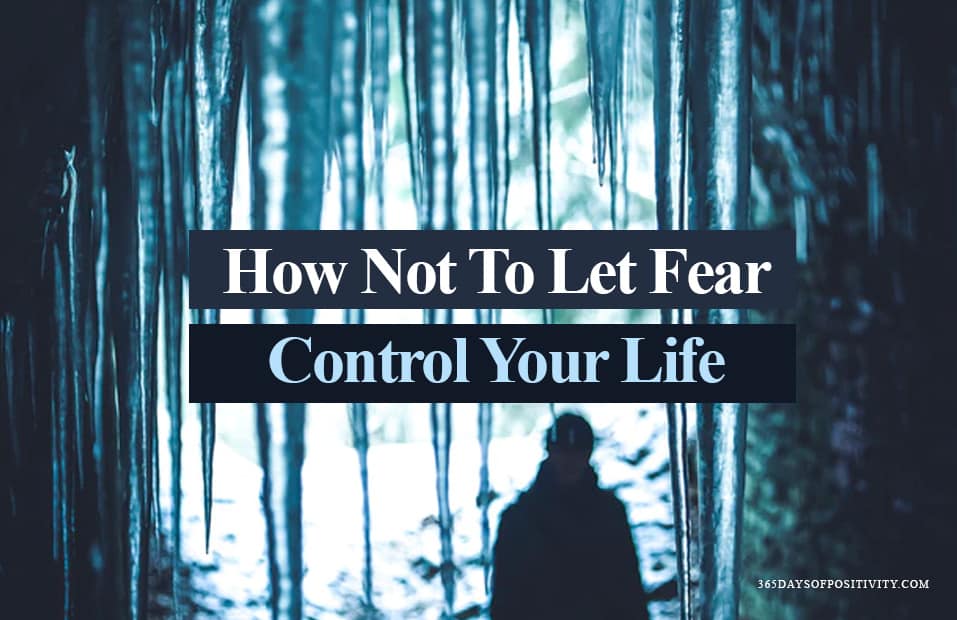Both fear and anxiety show similar responses to certain danger and perceived dangers. However, fear relates to a known and understood the real threat, and to know how to stop living in fear, can often mean either eliminating the threat or removing ourselves from the threat. It is not healthy to continue to live in fear, and it is estimated that up to 20% of people live with a form of fear and anxiety.

How to Stop Living in Fear
To deal with your fears, you have to face them, and there are a few ways to do this:
- Take time away from work to think clearly and sort out the problem
- Regulate your breathing as this will help to slow your heartbeat
- Face your fears ( think about what is the worst that can happen)
- Examine the evidence
- Discuss the problem with a professional counselor
- Focus on positive thoughts
- Practice mindfulness to stay in the moment
Fears and Phobias
Phobias are an irrational fear, and if you are afraid of heights to an extreme extent, as many people are, you are supposed to expose yourself to them in a controlled way. When you dwell on the fear, it becomes debilitating.
- Firstly you determine the trigger for the fear, and that is easy as you become extremely stressed when faced with heights.
- Consider what could happen to you if you fell from a height, then think about the probability of that happening (like a mental risk assessment).
- Practice some relaxation strategies, deep breathing, yoga, or mindfulness.
- Remove caffeine from your diet, as caffeine is a strong stimulant.
- Then, gradually expose yourself to your fear by climbing a hill or sitting on a third-floor balcony of an apartment block. Go to a funfair with a friend and try a scary ride.
- Know your limits, as you may not be able to overcome this fear without help. Find the right therapist for you, and work with them to solve the issues.
Often fears like this increase with age and stop you from doing otherwise enjoyable activities. In many cases, the behavior around the fear can be changed, and you will be able to move forward. Many people are totally cured of irrational fear. Still, of course, there is a risk associated with heights, and a healthy fear of something like abseiling and Mountain climbing is not irrational but is a protective mechanism inbuilt in us to keep safe.
The fear just becomes irrational when it extends to everyday life situations, like flights of stairs or taking a flight to another state, and we all know people with a fear of flying.

“I am letting go of fear” 
“I am optimistic about my future”
Don’t Allow the Fear to Control You
Discuss your problems with the therapist, and you will be asked to describe your fear. You will need to be open about how long you have had the fear and to talk about the problems that arise from it. If you have tried certain techniques to get rid of the fear, describe what you have tried and whether anything worked or helped you. The main fact is you want help and strategies around how to stop living in fear.
If medication is suggested to you, this is not usually a good idea, as it does not address the basis of the fear or solve any underlying psychological issues that cause the fear.
The cause of fear of heights or acrophobia is not fully understood. There is some study continuing that indicates it may be a spatial or vestibular problem, and being up high could ‘mess’ with our judgment. Still, we won’t really know until the studies are complete.
Stop Living in Fear
Maintain as stress-free a life as possible. Living in lockdown has been helpful to some people, as we have worked from home, avoiding rushing to work and back with the fear of being late and fear of not meeting deadlines. A lot of fear stems from over-commitment and being too busy day today, and that has to stop; we all need to slow down for a while and de-stress.
Conclusion
There are many different fears, and it is important to try to overcome them and live a normal life by facing our fears.







